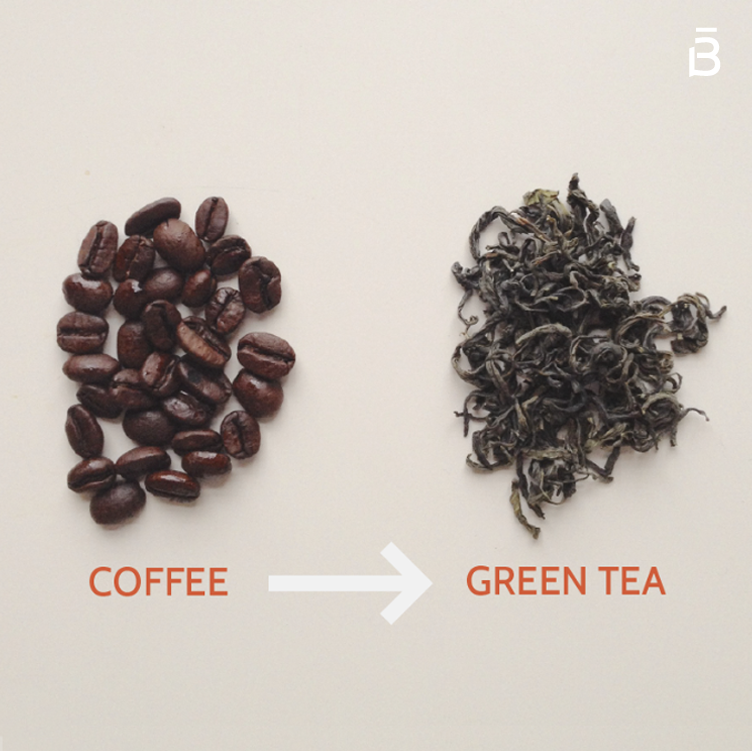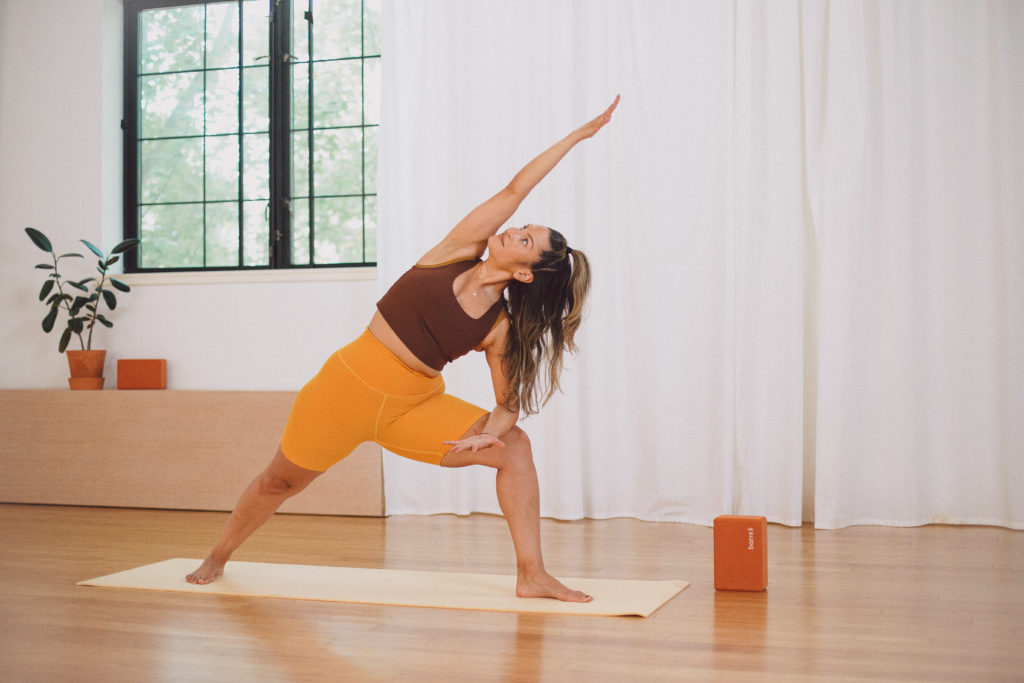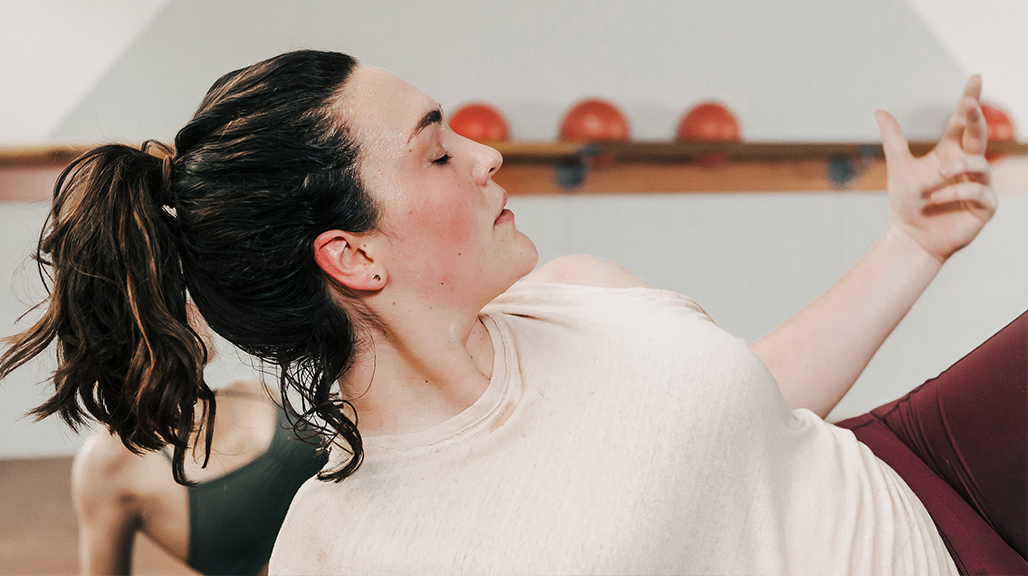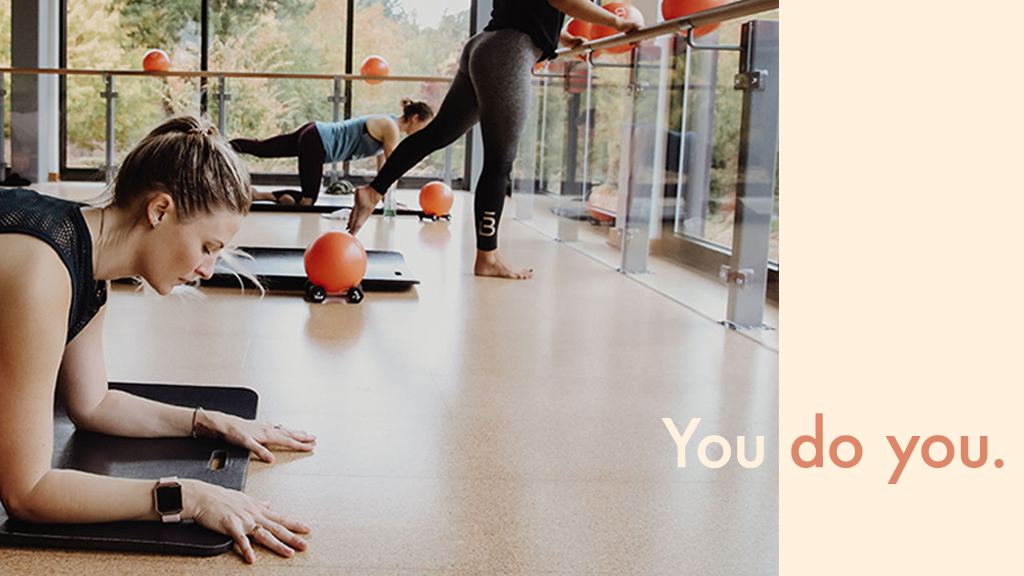Nourish
Tips for Choosing the Right Tea + How to Get Off Coffee
We’re in the midst of the barre3 Challenge, and many of you are struggling to cut back on coffee for the month. We avoid coffee during barre3 Challenges because it contains a high level of caffeine, and caffeine causes your blood sugar to spike. It also increases your stress hormone, cortisol. All of which can be bad news for your waistline.
Instead of coffee, we recommend drinking green tea, which is well known for its cardiovascular benefits, antioxidant effects, and support of mental clarity. Not only does it contain powerful anti-cancer properties, it also gives your metabolism a healthy boost. And with only a quarter to half the caffeine as a cup of coffee, it’s a far healthier alternative to your morning latte.
We asked naturopathic doctor and barre3 instructor Jen Curtiss to share a few tips on how to choose (and enjoy!) a cup of tea. Here’s what she recommends:
1. When possible, purchase organic loose leaf teas. Not only is the flavor of loose leaf more robust and full, you also avoid chemicals that are often found in tea bags and packaging. To best experience loose leaf tea, find a beautiful tea strainer and mug and turn tea time into a soothing ritual.
2. If you prefer the convenience of using tea bags, give Numi or Traditional Medicinals teas a try. The packaging of these brands uses eco-friendly materials that are healthier for the environment and your body.
3. Avoid over-steeping your tea. This can create a bitter taste. Green tea only needs to steep for 20 seconds or so to develop a mild, delicious flavor.
We also learned from Dr. Curtiss that if you’ve been wanting to switch from coffee to green tea, try not to go cold turkey — caffeine is a drug, after all. To get off coffee, try substituting one cup of green tea for one of your cups of coffee, reducing your coffee intake by one cup every three days. This will help reduce any withdrawal symptoms like headaches, fatigue, or foggy thinking.
Even if you’ve been a die-hard coffee devotee, we think you’ll love the way green tea makes you feel. As Sadie said in a recent podcast, when she switched to green tea she noticed that she had brighter skin, better digestion and sustained energy all day long. Maybe you’ve had a similar experience. Let us know in the comments below!
We’re in the midst of the barre3 Challenge, and many of you are struggling to cut back on coffee for the month. We avoid coffee during barre3 Challenges because it contains a high level of caffeine, and caffeine causes your blood sugar to spike. It also increases your stress hormone, cortisol. All of which can be bad news for your waistline.
Instead of coffee, we recommend drinking green tea, which is well known for its cardiovascular benefits, antioxidant effects, and support of mental clarity. Not only does it contain powerful anti-cancer properties, it also gives your metabolism a healthy boost. And with only a quarter to half the caffeine as a cup of coffee, it’s a far healthier alternative to your morning latte.
We asked naturopathic doctor and barre3 instructor Jen Curtiss to share a few tips on how to choose (and enjoy!) a cup of tea. Here’s what she recommends:
1. When possible, purchase organic loose leaf teas. Not only is the flavor of loose leaf more robust and full, you also avoid chemicals that are often found in tea bags and packaging. To best experience loose leaf tea, find a beautiful tea strainer and mug and turn tea time into a soothing ritual.
2. If you prefer the convenience of using tea bags, give Numi or Traditional Medicinals teas a try. The packaging of these brands uses eco-friendly materials that are healthier for the environment and your body.
3. Avoid over-steeping your tea. This can create a bitter taste. Green tea only needs to steep for 20 seconds or so to develop a mild, delicious flavor.
We also learned from Dr. Curtiss that if you’ve been wanting to switch from coffee to green tea, try not to go cold turkey — caffeine is a drug, after all. To get off coffee, try substituting one cup of green tea for one of your cups of coffee, reducing your coffee intake by one cup every three days. This will help reduce any withdrawal symptoms like headaches, fatigue, or foggy thinking.
Even if you’ve been a die-hard coffee devotee, we think you’ll love the way green tea makes you feel. As Sadie said in a recent podcast, when she switched to green tea she noticed that she had brighter skin, better digestion and sustained energy all day long. Maybe you’ve had a similar experience. Let us know in the comments below!










18 people have left a comment. Join the conversation!
View Comments